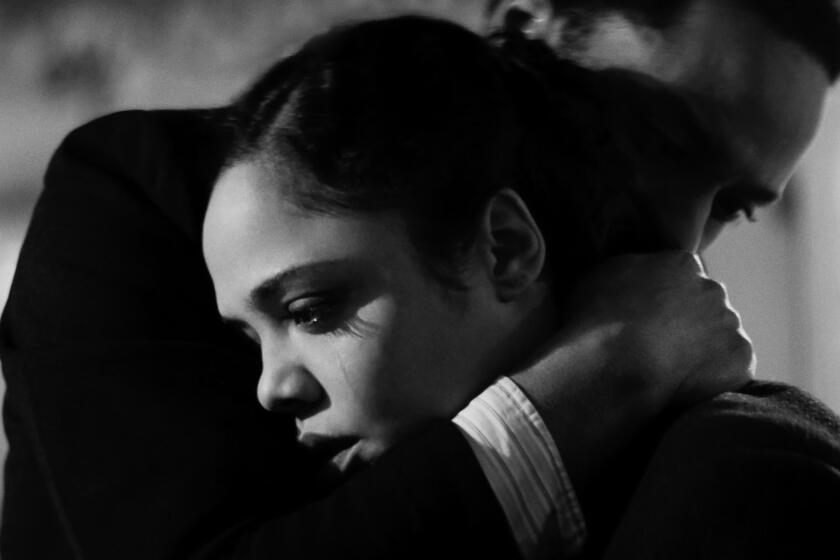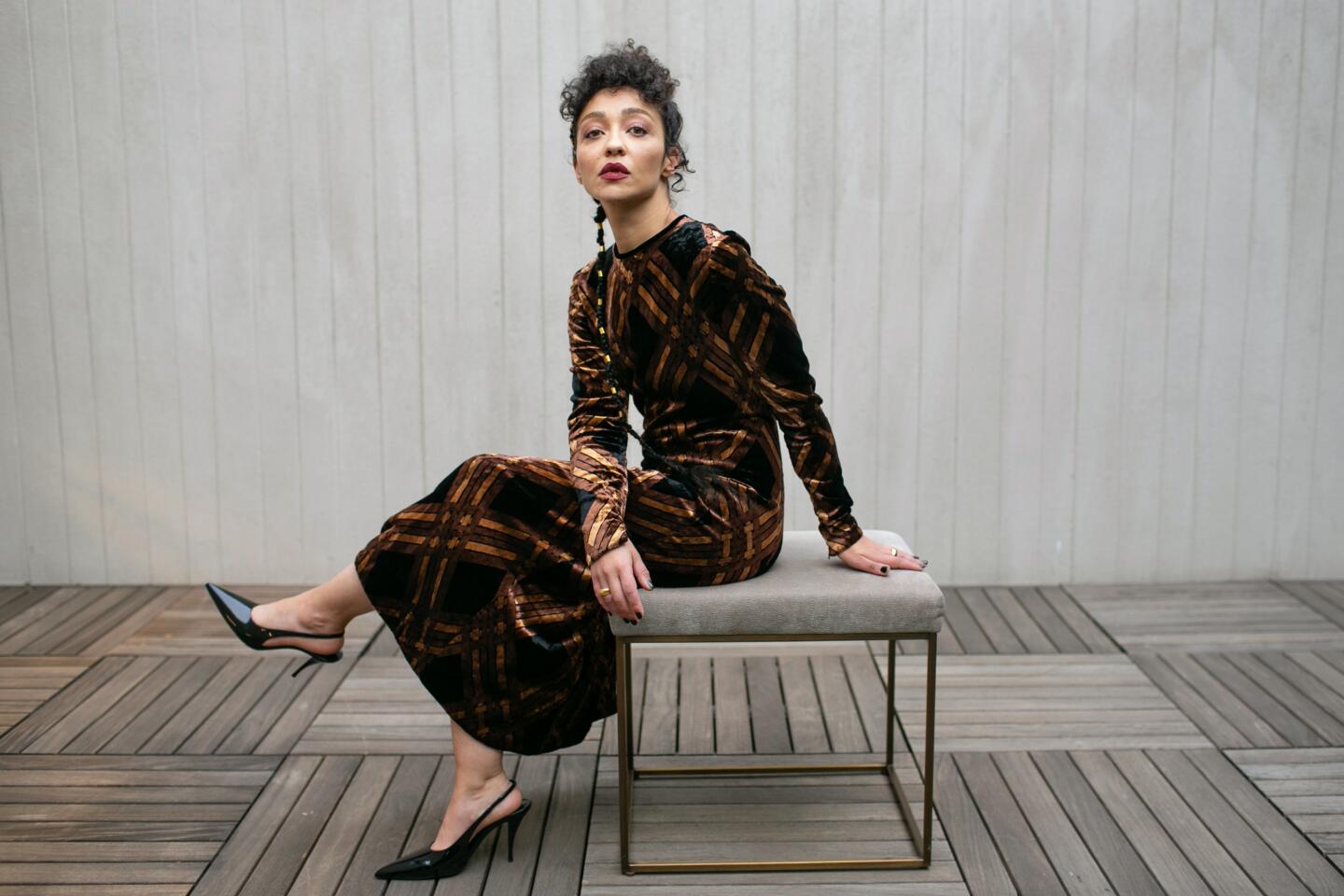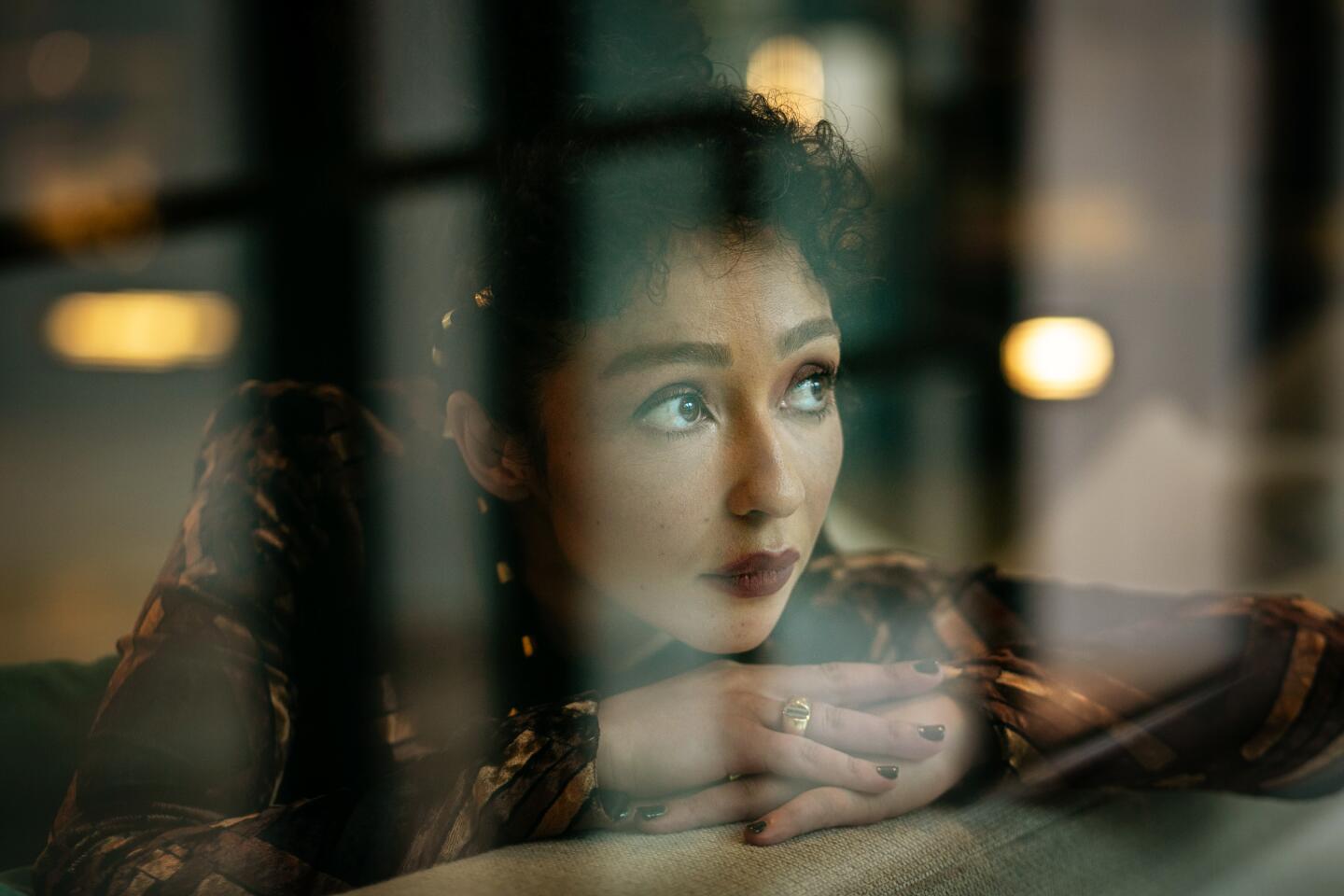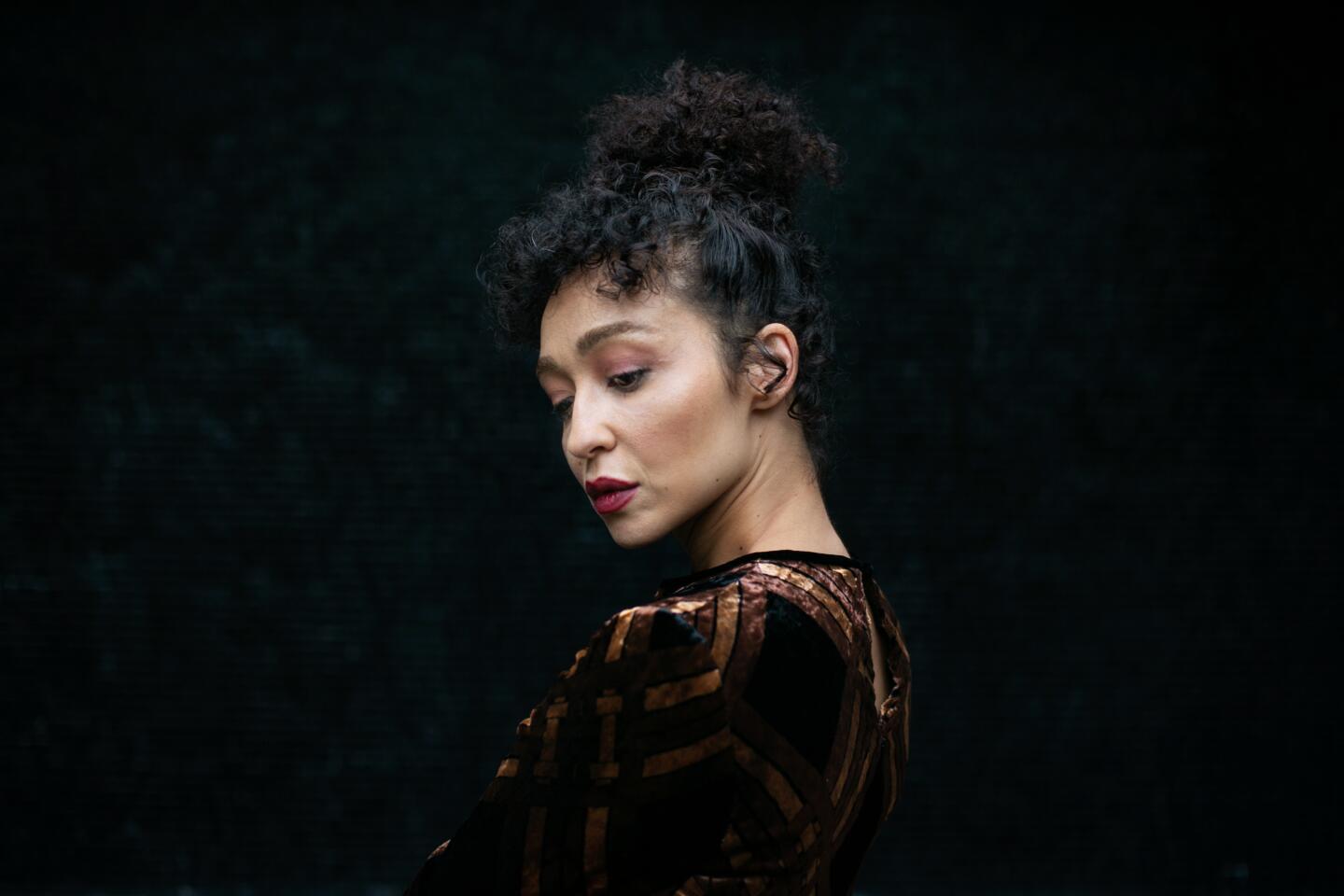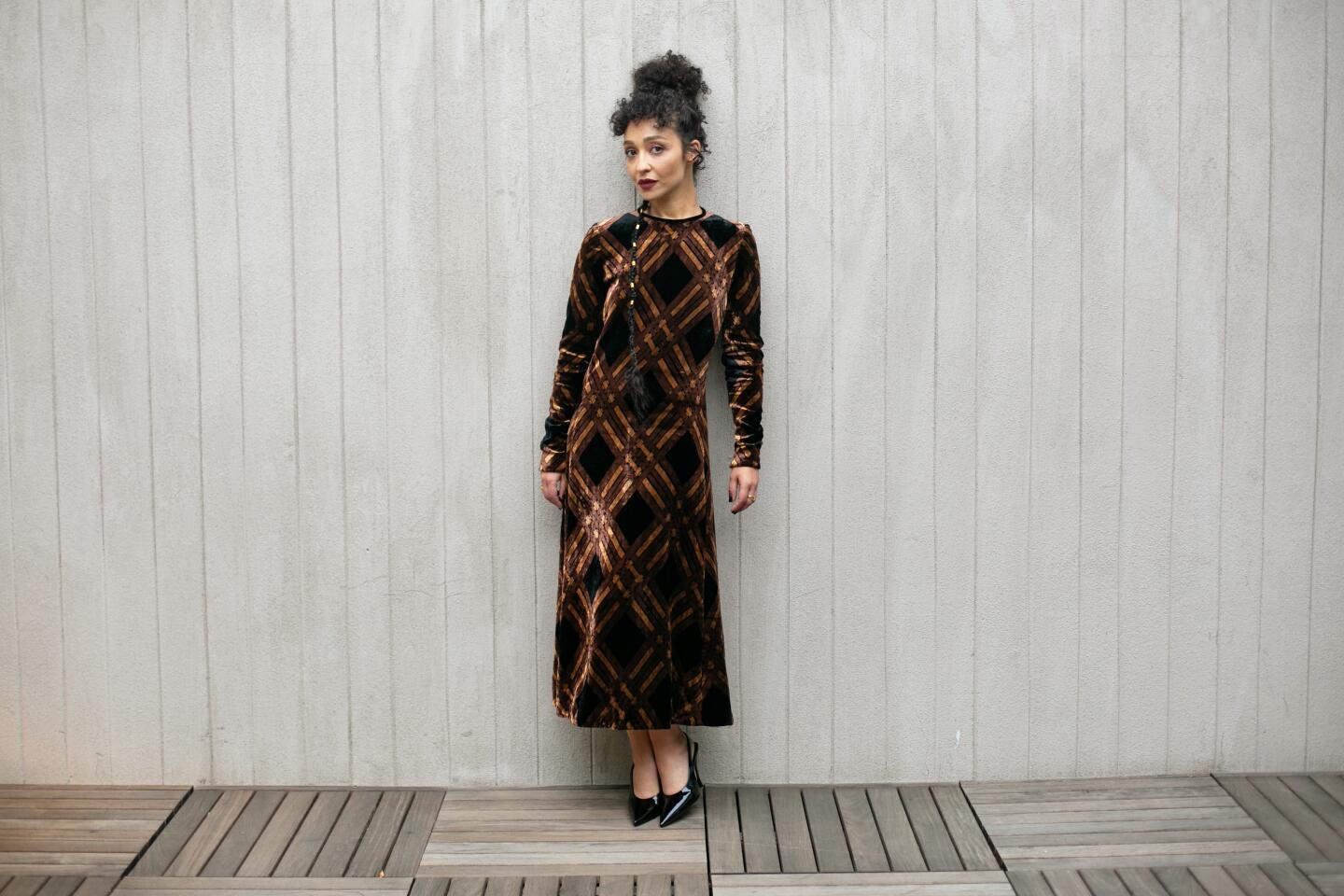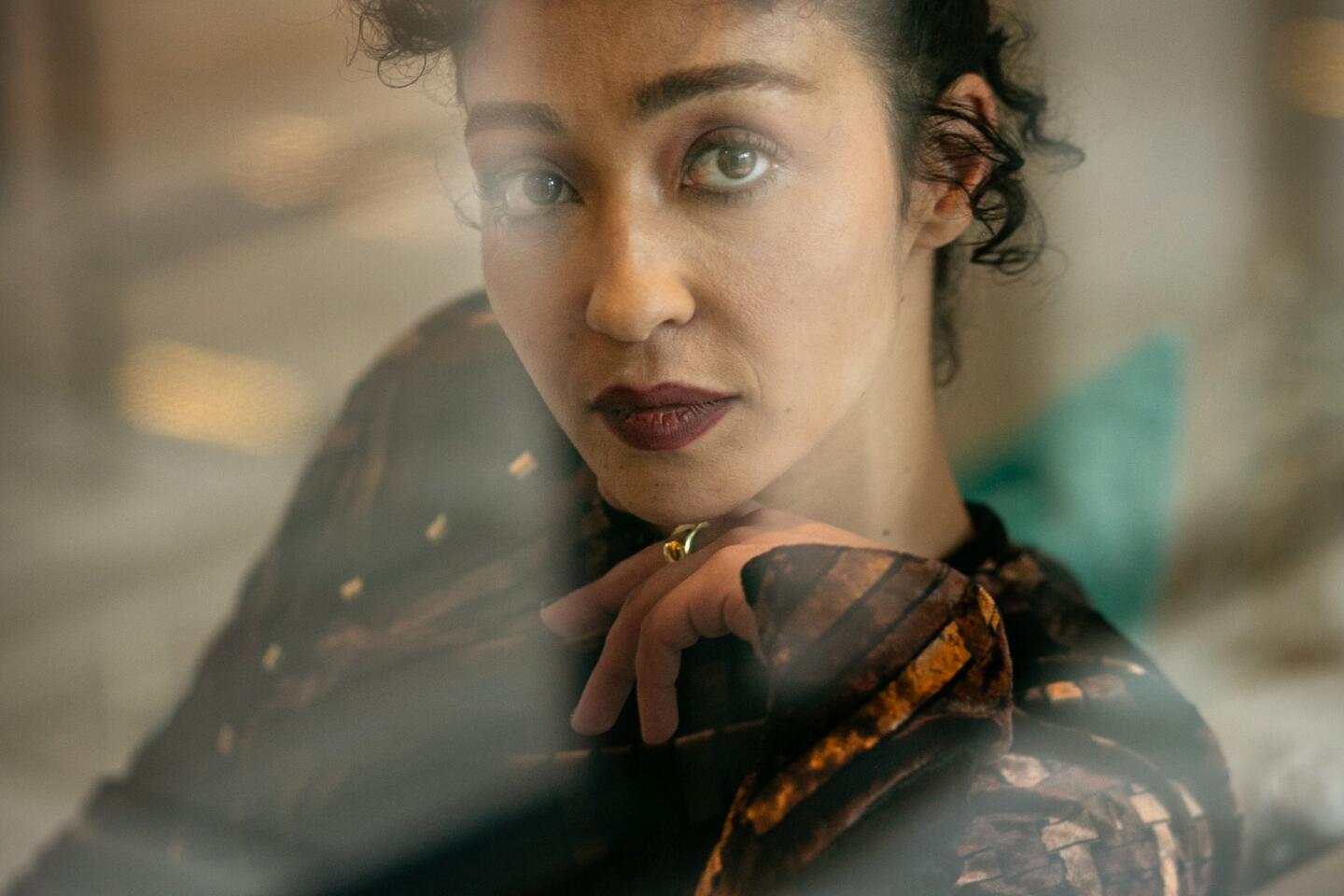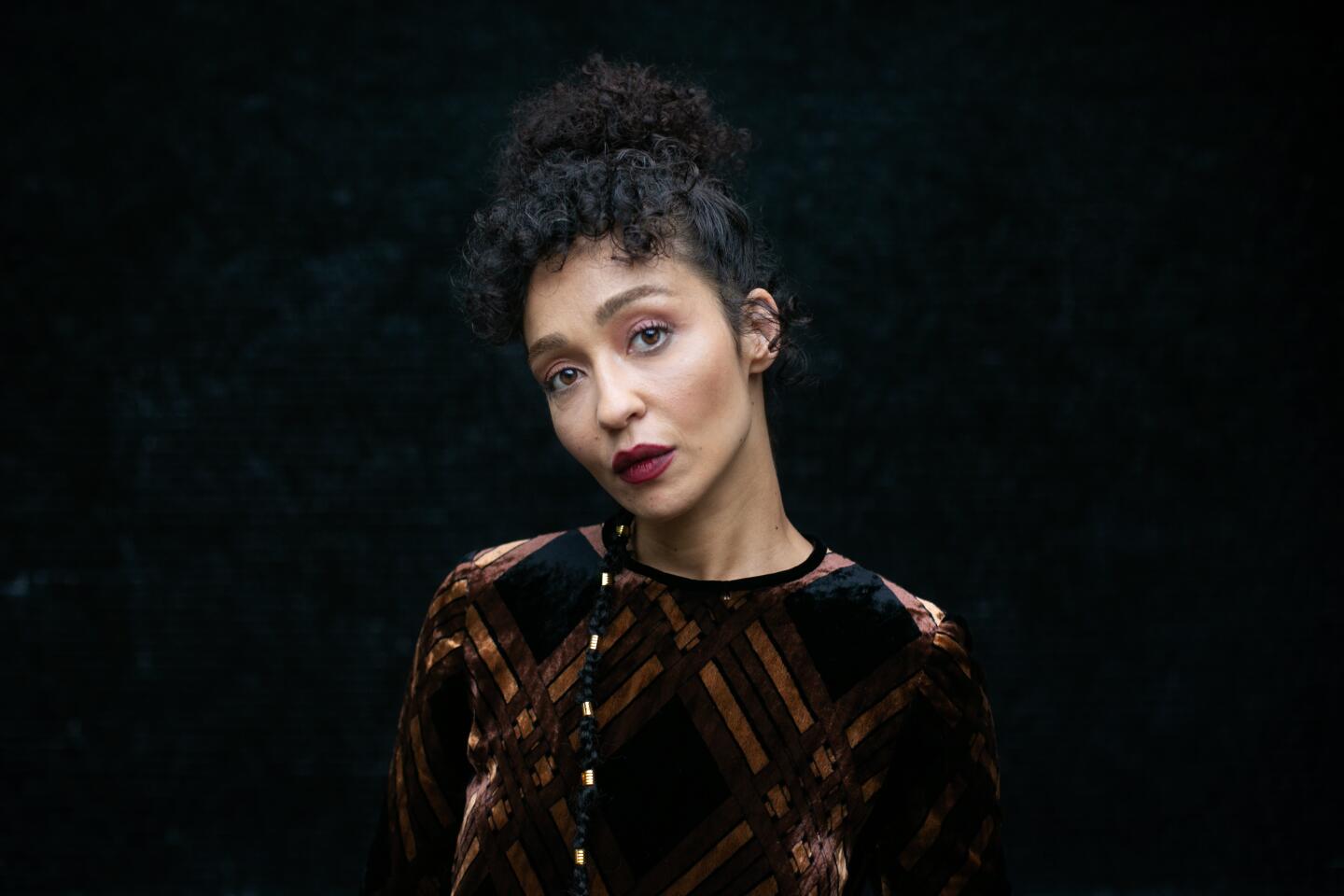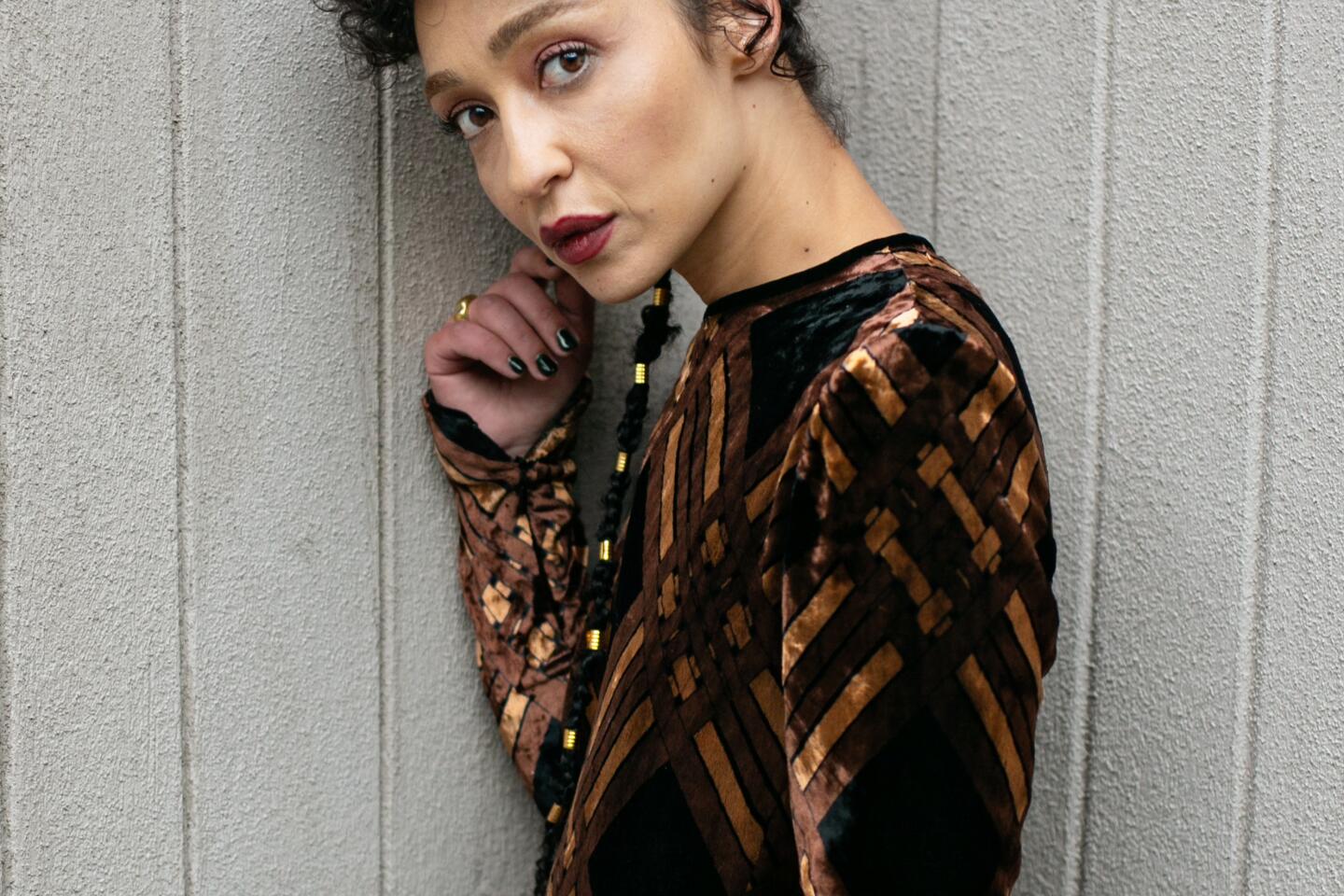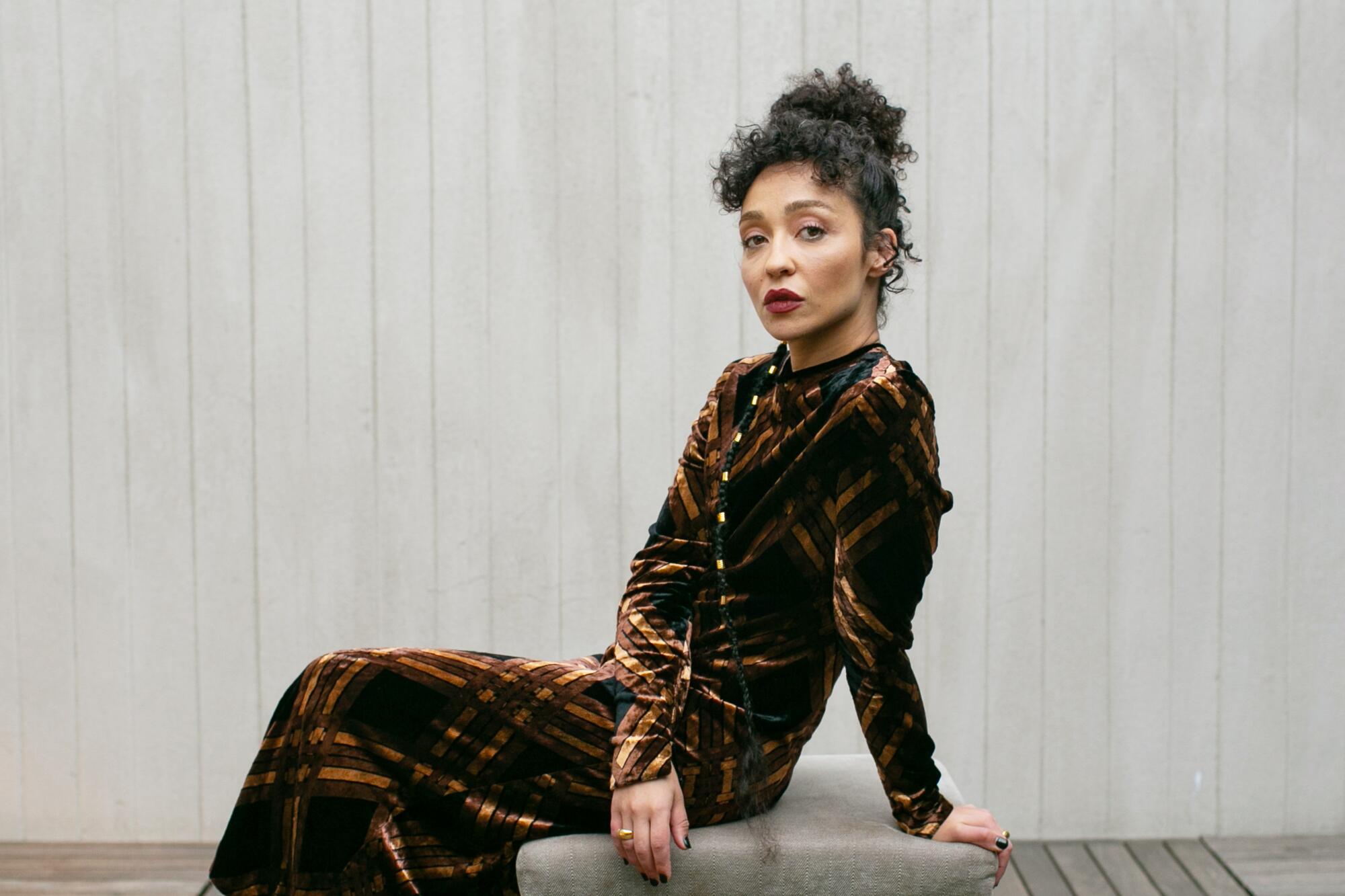
Ruth Negga has given the subject of identity a lot of thought.
And not just because she stars as Clare Kendry, a fair-skinned Black woman who moves through life as a white woman, in “Passing,” Rebecca Hall’s adaptation of Nella Larsen’s 1929 novel. No, Negga’s musings on identity stem back to her childhood in Ireland and England, where she was first introduced to the concept of being othered.
“To be honest, I’ve never fit in anywhere,” she said over Zoom in October. “I think being Black in Ireland when there wasn’t that many Black people and being Black and Irish in London at an all-white school in the early ’90s wasn’t great for me either.”
At the same time, being hard to categorize has not always been a bad thing, she says. “I think sometimes there is a pleasure I get in being different. I felt safe being the other in many ways because that’s where I could be my whole, true self.”
Actresses Tessa Thompson and Ruth Negga collaborate with Rebecca Hall on her adaptation of Nella Larsen’s acclaimed novella ‘Passing.’
The Ethiopian-Irish actor frequently upends notions of social constructs such as race and identity in her work. In “Passing,” which is set in the 1920s, Clare enjoys the privileges afforded only to white women by day while sneaking off to Harlem to commune with Black folks by night (Tessa Thompson co-stars as Irene, a woman who only flirts with the possibility of passing). And in 2016’s “Loving,” Negga stars as Mildred Jeter, a woman in an interracial marriage who challenges the Supreme Court to end the anti-miscegenation laws that condemn her marriage as unlawful.
For the record:
6:13 p.m. Nov. 15, 2021An earlier version of this post incorrectly said “Preacher” was in the DC Extended Universe.
“Passing” is Negga’s biggest film role since the 2016 drama, which earned her Academy Award and BAFTA nominations for lead actress. Since then she’s had roles in big-budget films, including “Warcraft” and “Ad Astra,” and has worked in television on comics-based series (“Agents of S.H.I.E.L.D.” and “Preacher”). “I love comics,” she said. “I love anything subversive. Obviously I’m too scared to be subversive in my real life, so I do it in my acting.”
The Times caught up with Negga to discuss disrupting notions of identity, her thoughts about passing and why she never intends to pick up any hobbies.
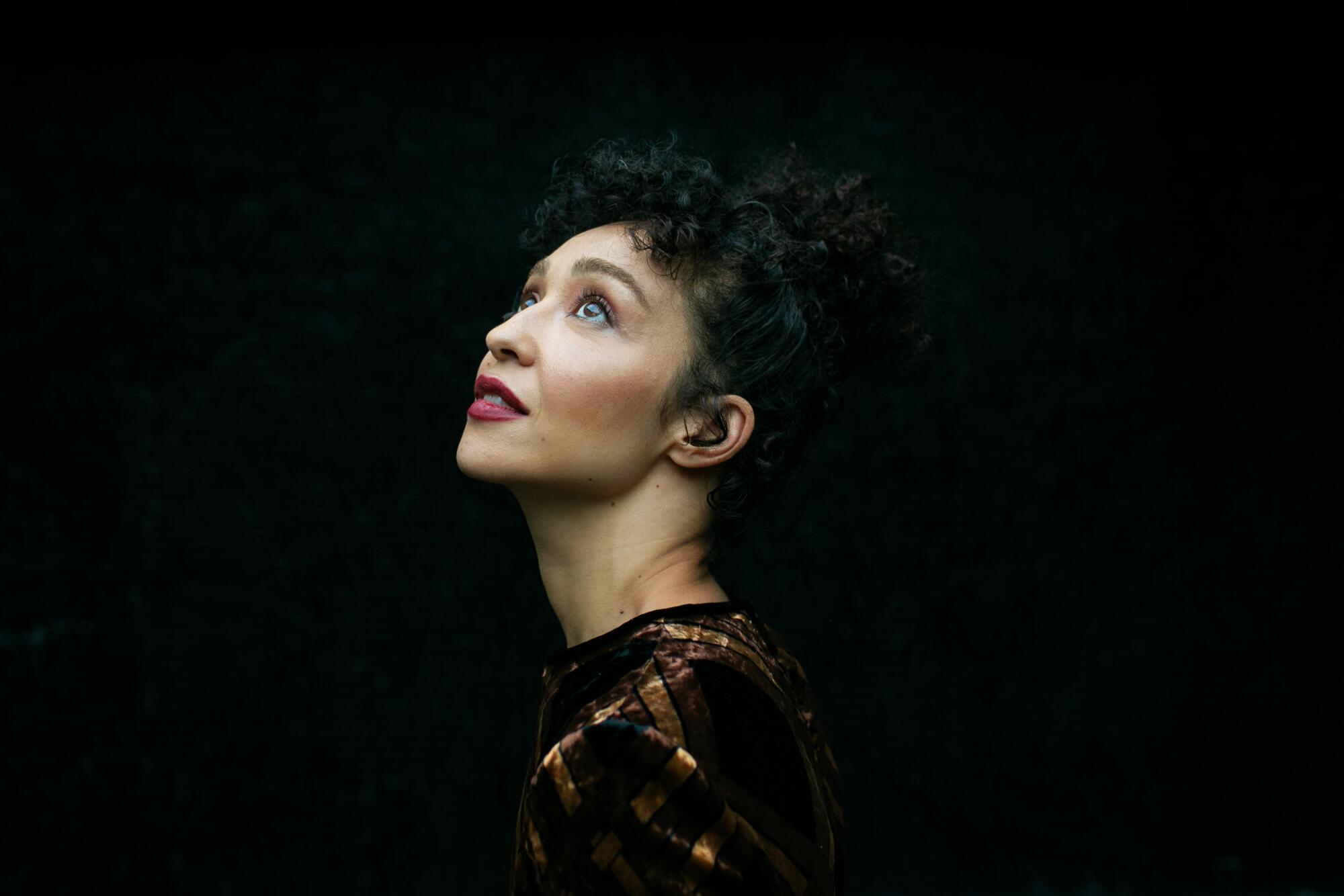
What draws you to stories about identity and the ambiguous nature of it?
I’ve always been interested in one’s own perception of [their] identity versus society’s perception, how and where that clashes and collides and where it meets in a friendly matter. It’s tricky because we don’t have an outside eye of ourselves; everyone has their own gaze and lens through which that gaze is occurring. And that’s all fine. My problem is when I feel like other people’s perceptions and ideas of who I am and who they want me to be circumscribes my life and is limiting. That’s where I feel a bit itchy and want to get out of the box.
I feel that is very much in line with these two women in “Passing.” They’re both pushing at the edges of their assigned box. One is doing it very consciously and the other is reluctantly doing it. That kind of tension interests me.
I’ve never read a book [where] I was [more] psychologically captivated by the way in which identity is treated. [Larsen] captures the nebulousness of identity that is ever-shifting, independent of social mores or social constructs: race, gender, sexuality, motherhood, all of these things. And you think, wow, if you’re being bombarded with who you ought to be all the time, where is the room to discover who you are? And why aren’t we afforded that freedom? Still to this day, everywhere you go [Black women are fed] subtle and explicit messages of who we’re allowed to be and where we’re allowed to exist.
Take Irene for instance. We’re aware that we should applaud and condone her unimpeachable status as a wife, mother and upstanding pillar of this community. She’s all about the uplifting of the race, which is amazing, but that doesn’t leave her any room for individual idiosyncrasies, foibles, needs, desires, wants. And for me that’s a continuation of a theme that has been threaded through American [literature]. This thread of the onus being on Black women to serve the community and a higher purpose. And I’m thinking, “What if the higher purpose is to serve oneself?” When is that the higher purpose? There’s been many [Black female] lives sacrificed at the altar of this world and I love that this book addresses that.
And then swinging the pendulum the other way, you’ve got Clare, who is like “F— that s—.” A Black woman in that time couldn’t flower and bloom as she wished. And passing is a perfect narrative tool because it’s so constrictive in [and of] itself. She’s leaving one set of constraints to shimmy into another.
Passing, I think, was viewed as freedom from racial constraints, but actually there’s another whole set of constraints because it’s a performance, isn’t it? You’re constantly hiding and within that hiding is isolation and danger. Are you going to be found out? Those twin burdens are a lot to bear. So she is really aiming for freedom and aiming to be her true self, but there’s still a price to pay there.
I love this book, man. I could talk about it forever.
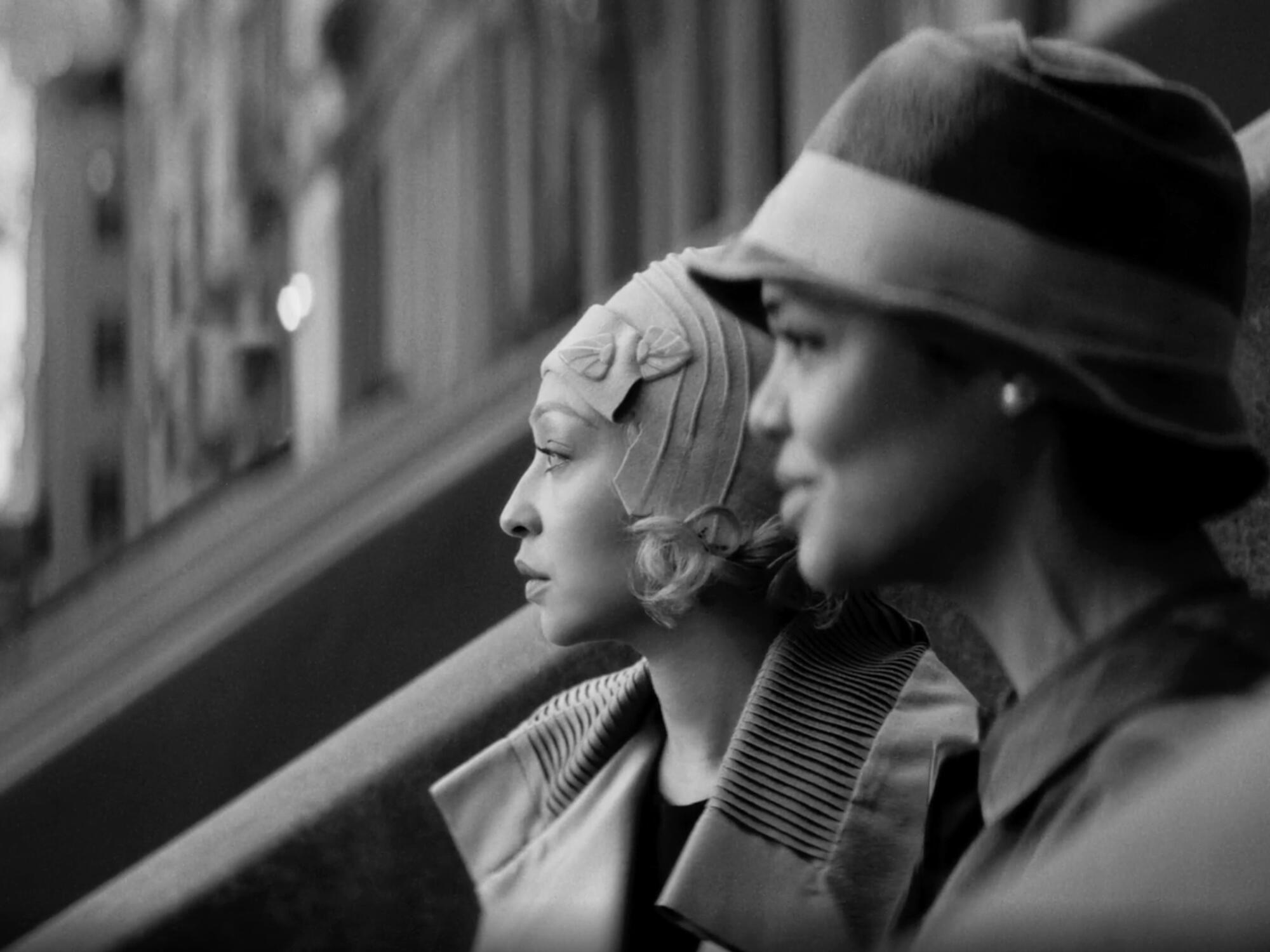
What made you interested in playing Clare as opposed to Irene?
The great thing about being an actor is you have to be super in touch with your emotions and understand how to manipulate them in a way. And how that spills into your real life is you become very aware of your own impulses, your own biases and you listen. And at that moment in time, for whatever reason, I was listening and viscerally I needed to play Clare. It was really to quiet some sort of curiosity within me. Because I’m so fascinated with the color line and the ridiculousness of race, I wanted to explore what it was to literally f— with it [and explore] what it feels like to be this woman who is actually wielding so much power, but secretly. There was a thrill to that, I must say. The danger is thrilling.
I’m reading a book at the moment called “The Lost Black Scholar” [by David A. Varel] and he talks about two of his relatives passing and how one lived in complete isolation and had no friends or family because of the terror and the burden. And the other was just crippled by anxiety at being found out. What kind of life is that to lead? Can you imagine having to sacrifice the essentials of your life like other people, friendship, love, safety, in order to just get paid the same as a white woman or a white dude? Or just to achieve your potential? It makes me want to howl with rage. It makes me really sad.
[Tears up] It makes me think of all the dreams that were deferred indefinitely. And not even that, the violence that was meted out to people who just wanted to reach their potential. And it’s still happening, you know?
The British actor Rebecca Hall makes a strikingly intimate writing-directing debut with this Netflix-acquired adaptation of Nella Larsen’s 1929 novel.
What do you think of Clare’s choice to pass?
I’m fine with it. I don’t feel in any position to judge a Black woman’s choice to survive or desire to flourish. Or desire to have desires, even. Absolutely no judgment from me.
And this isn’t like a writer now writing about 1929. It’s fiction, but we can pretty much take this as Bible because this is Nella. As a mixed race woman, you can tell that this is her story. You know viscerally and instinctually that this is her story. And you can tell there’s no judgment on [her part toward] either of these women. They are just reacting to the circumstances that they have been put in.
How does “Passing” try to rebuke the tragic mulatto trope and why do you think Hollywood has historically ignored stories like this?
I don’t know why, that’s too big a question for a little ol’ me. Or maybe it’s not, maybe it’s simple: Misogynoir. Actually, yeah. Mic drop.
Because when you look at those portraits, they’re pathetic and it robs them of their power, their agency. I do not believe that women passing were robbed of their agency. This was their way of gaining agency. And yeah it’s a f—ed up way to have to do it, but this was one of their only avenues to try and achieve their potential: access to education, to housing, to a f—ing bathroom, to a f—ing water fountain. I mean, these are things we should take for granted.
History is so important in order for us to move forward because we cannot forget that people could be murdered for simply drinking water, sitting down on a bus. We mustn’t forget these things. This is why history is key. And I mean being told the whole truth about history, not just selective reading. And the whole truth means now we’re in a position to relook at history and unearth the untold stories: the deliberately sidelined, the discarded, the burnt-up, the hidden. Because of course that happened. When there’s shameful episodes in history, what do we do? We hide it.
You have to resurrect shame in order to move through it. Ghosts of the past will keep on haunting us until we acknowledge and integrate their presence into the world.
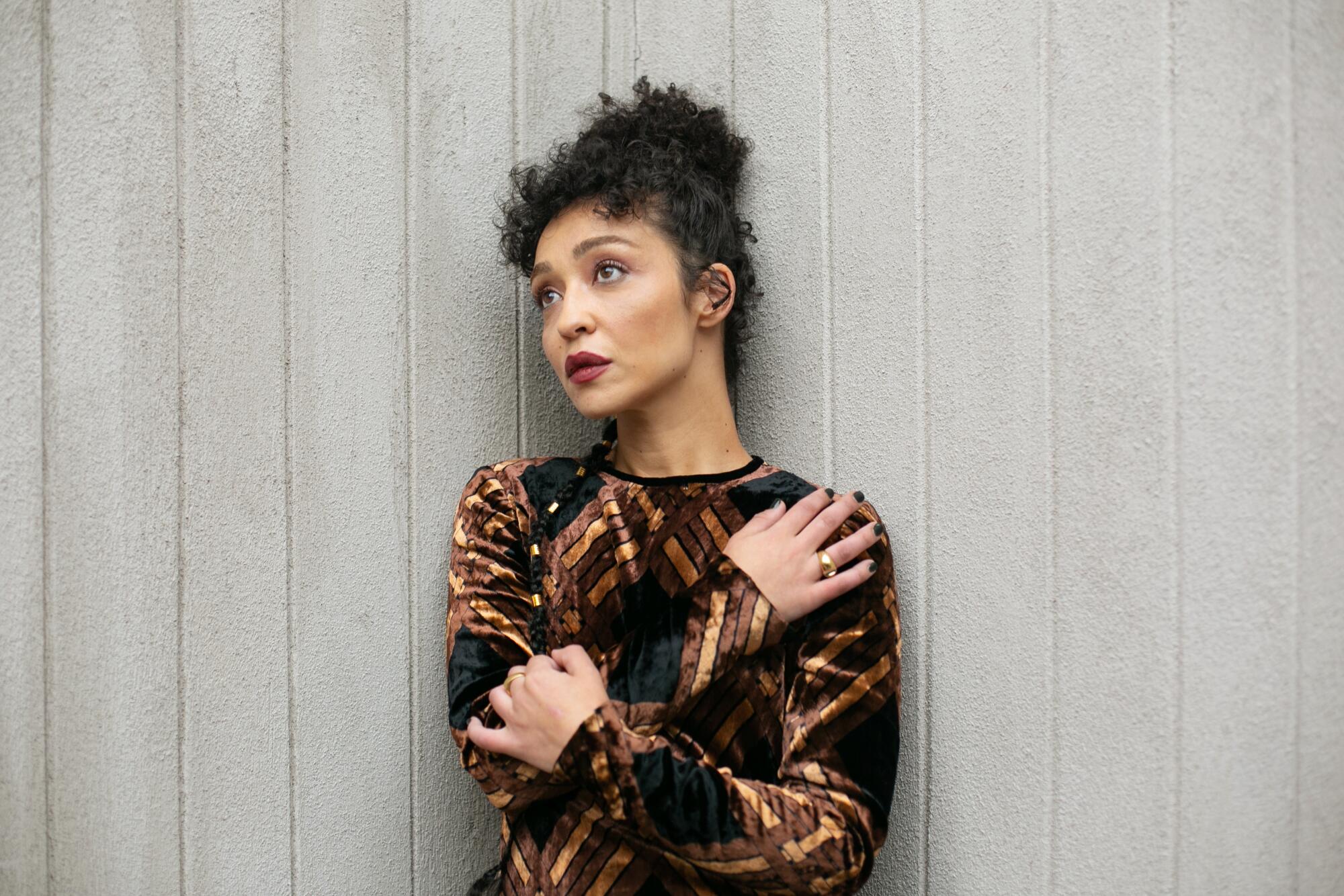
How have people projected their ideas of identity and race on you and how has that changed since you’ve started acting?
I’ve kind of experienced that my entire life. I’ve always been othered. And sometimes my experience of that has been fine.
In Ireland, I always felt very proud of my otherness. I was made to feel my distinctiveness was something to be cherished and proud of. And I think that has a lot to do with my family. [After] my father died, I think everyone was feeling like, “Well, we want to keep his memory alive and for her to feel very proud of that connection to Ethiopia” and my color and they felt very defensive of me. I’m not sure how often they had to actually defend me, but that was their impulse and instinct.
But in London in the early ’90s, there was a lot of anti-Irish feelings still present and I was in a school where there was hardly any Black people. And so the combination of those two things made for a kind of uncomfortable experience. I felt othered, I felt misunderstood, I felt like people were sort of distancing themselves from me. But then again, maybe I distanced myself from them because I did not want to assimilate [laughs]. I think it was because I had been so instilled with this idea of pride in myself, my Irishness and my Blackness. If being accepted and belonging was assimilating, I was having none of that.
You’ve been nominated for an Oscar, starred in a successful TV series and are earning more awards buzz for “Passing.” Do you have certain career goals left to achieve?
I’m goalless [laughs]. I want, at some point, to have autonomy of the type of work I do, the people I work with. And once I’m there, I’m good.
I want to keep finding interesting people I want to work with, interesting scripts I want to work on. Scale doesn’t mean anything to me until it does, which means I don’t want to get bored. I don’t want to feel trapped.
Acting is changing the atmosphere in the room, on the stage, and that’s provocative. Acting by its nature is disruptive. And I like that because to me, it’s not just for the sake of disruption, I’m not just marching in there being anarchic, it’s often a byproduct of the work that interests me.
How have you adjusted to life in the United States?
[While working on “Preacher”], I was in a relationship and we lived in London. [After we broke up] I thought, “Well, nothing’s tying me down to anywhere at the moment. I haven’t given L.A .a crack yet.”
Unfortunately I’ve only really lived in L.A. during lockdown. So now I’m sort of spreading my wings a bit. And I like it. Mostly it’s because the weather is so yummy. Not having to wear a full body duffle coat for six months out of the year [is amazing] because I’m really sensitive [to the weather]. My mental health is totally affected by the weather and there’s something about L.A. that I feel is like a spirit lifter.
I’ve always been obsessed with America. I still can’t walk around New York without my jaw being on the floor. I feel like I’m in the TV. I’m 40 years of age, but I feel like a kid. Because it has that glamorous aspect to it, I love it.
I’ve been obsessed with America’s history and tensions and its struggle to integrate the bad into this idea of itself as the land of the free and the brave. And then reading Black literature, which I still find solace in, I feel witnessed even if I didn’t grow up [here]. But that speaks to the universality of art. You can be seen by someone who has had a different life experience to you and that’s why I love it.
Do you feel at home here yet?
It’s really important to make a home within yourself. I used to roll my eyes at that, but as I got older, that is sage advice. But the only way you can get there is if you have integration and acceptance within yourself. That takes a bit of life work and that’s not always the easiest thing.
You can see that Irene is not entirely at home within herself, whereas with Clare, I feel she’s put the work in to be entirely at home within herself. Do you ever meet someone and you go, “You’ve worked at loving yourself. You’ve worked at integrating the dark and the light and you got to that place of some sort of equilibrium.” I want that.
I’m definitely more there now than I was even last year. I hit 40 this year and I wasn’t worried about it, but I was kind of like, “What’s the f—ing big deal with everyone making us worried about 40?” I was like, “What’s going to happen?” And then weirdly enough, something physically clicked and I went, “Ah, I’m giving less f—s about the small stuff. But actually giving greater f—s about the bigger stuff: identity, my place in the world, my voice being heard, other voices being heard.”
And that’s really exciting for me because I’ve always wanted to consume writers like Nella, women like Mildred, who I think didn’t get their fair trumpeting and celebration in their lifetime. This is the path I want to be on. Tessa’s got a production company, she’s adapting [Raven Leilani’s book] “Luster.” Like, “Yes, it’s happening, we’re doing it!” Giving these voices of Black women a platform. That excites me.
How’d you spend your time during the pandemic?
In my own little bubble in L.A., which was sort of depressing because I’d moved [here] to have my fabulous new L.A. life. [Then it was like], “Oh, OK. Just me then.” Which is fine because I’m a bit of a loner anyway. I love being around people and I love talking, obviously, but I need to regroup and reenergize and I need to be on my own for that. I love daydreaming and you need to be on your own for that. I realize that’s my creativity access point, daydreaming. I think a lot of actors and directors feel like that. For Rebecca, the image of the shoes walking in the beginning [of the film], that came to her in a fever daydream.
So yeah, I did a lot of that. And a lot of deep diving. I was [planning] to take a break after I did a play, “Hamlet,” last year anyway. And so I used the time to sort of unpack a lot of the last few years because I basically hadn’t had a break since “Loving.” That’s five years of kind of going, going, going. I needed a long nap just to sort of find equilibrium, and I worked hard on my mental health. Did a lot of analysis and also readied myself for the press tour of this. ... I wanted to be ready because it’s not easy subjects we’re talking about.
Did you manage to pick up any hobbies?
Absolutely not. I’ve never had a hobby and I don’t intend to have any, ever. That sounds awful, doesn’t it? Every time I think I’ll pick one up, I think, “It’s too late, Ruth.” It’s a terrible attitude, I know. But you know what? If I see one I want I’ll pick it up, but I haven’t come across a hobby I want yet. Maybe professional napper.
More to Read
Only good movies
Get the Indie Focus newsletter, Mark Olsen's weekly guide to the world of cinema.
You may occasionally receive promotional content from the Los Angeles Times.
